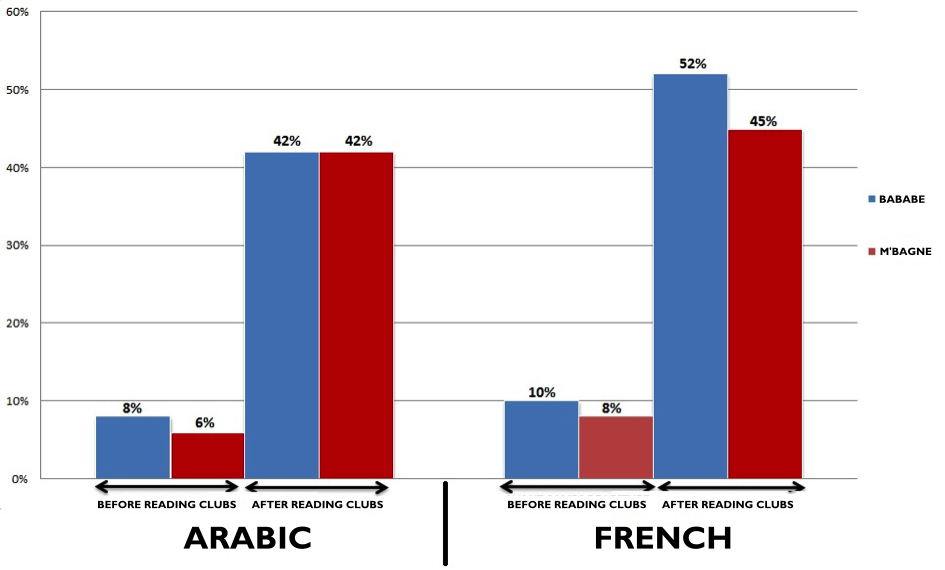Reading Clubs Improve Literacy Levels in Rural Mauritania

“Before the reading club my French and English were not good at all.” Sadly this was the reality of so many children in the Bababe-M’bagne region of Mauritania including Hawa, a 15-year-old girl, starting her first year of high school. “Even at the beginning of the lessons at the reading club it was difficult for me,” continued Hawa, “but with time, after a month or so, I got better.” With average literacy levels in French and Arabic at 8%[1] in the Bababe-M’bagne, it was no surprise that so many children found it hard to fervently pursue their studies.
Reading and comprehension are directly correlated to learning outcomes and for many years the children in Bababe-M’bagne lagged behind. Many were incapable of reading the two national languages of Mauritania, French and Arabic, and fell well behind in acceptable literacy standards nationally. Without education, how does a child have life in its fullness?
To tackle this problem that plagued the region, the Regional Inspector of Education partnered with World Vision to launch the Basic Education Improvement Program in March 2016. This project aimed at improving the basic education level of children in the area of reading and comprehension. In cooperation with parent-teacher associations (PTAs) in 10 localities in the two districts, World Vision and the Office of the Regional Inspector of Education were able to ensure local level acceptance of the project, ensuring that parents would allow their children to participate in the clubs.
The PTAs provided the locations in the communities for the club meetings, the Office of the Inspector of Education provided the teaching materials for the teaching volunteers and World Vision provided learning materials such as blackboards and chalk for the classes and well as training for the teachers. Clubs were in full swing in all 10 localities by June 2016 and carrying on till now.
“We first started off with a word and when you could pronounce and understand it, you were given a sentence and when you could read and understand that, you were given a paragraph,” described Baba Alhousseynou, a 14-year-old reading club member. “The teacher would take us through the class, making sure we could read, especially Arabic, and would also take his time to make sure we could understand what was being taught. We would write the lessons down, take it home and study it.”
Hawa and Baba are convinced reading clubs have greatly improved their ability to learn. “Being in Quranic School, you are supposed to practice your lessons when you get home. Previously we were not able to do this because we couldn’t read Arabic but now, after the reading clubs, we can do that.”
Both Hawa and Baba not only think the reading clubs are helpful, they find them fun and interesting. “Our teacher is very laid back, he makes the classroom a fun place to be, this has made it a good place to learn. We feel like we were watching TV and learning,” remarked Baba, with a smirk of fond memories draped on his face. “The thing I liked the most was that the teacher was always smiling,” added Hawa.
The children are not only literate; they are also empowered and more confident than ever. “I’m not ashamed anymore. Previously, when I was asked to read something at home by my grandparents or parents, I couldn’t and this made me feel bad. But now I can read and explain both French and Arabic to them,” Baba said proudly. “The learning environment in the reading clubs has helped us study even better than our classes in school.”
Since the introduction of reading clubs, the reading level of the 600 participating children as rocketed. From an average of 8% testing as literate at the start of the project, an average of 45%[2] are now testing as literate. With this drastic improvement in literacy levels, it’s no surprise that the project has a stamp of approval from Hawa and Baba. “We hope that these reading clubs continue for the coming years,” they said, “especially for areas who lack teachers."
